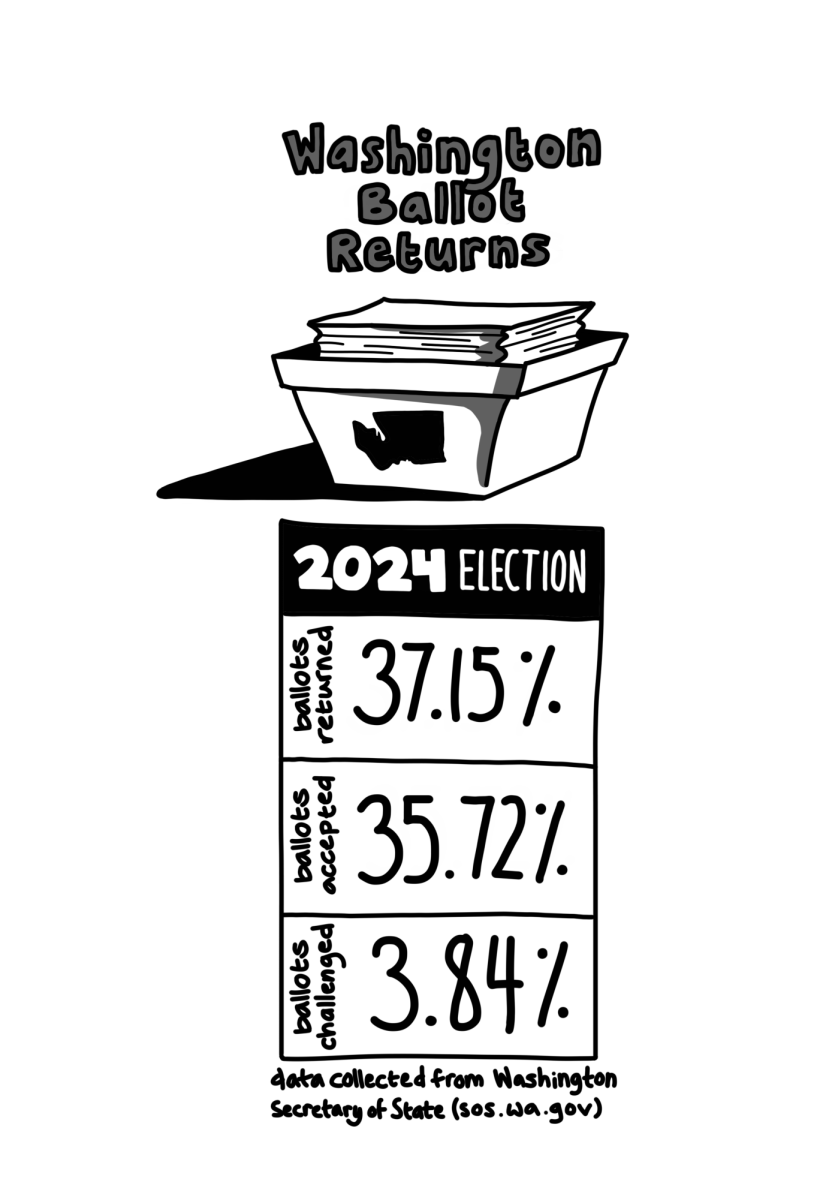A Whitman education is set to have a sticker price of just under $50,000 next year following the Board of Trustees’ approval of a five percent tuition and room and board hike at its winter meeting.
The increase, which raises tuition from $36,620 to $38,450 and standard room and board charges from $9,260 to $9,720, represents a smaller increase from the six and seven percent tuition increases of recent years. ASWC fees remain unchanged at $320, while textbook and supply costs, which vary, can amount to well over $1,000. President Bridges and other administrators worked with the Whitman Budget Advisory Committee, which includes student, faculty and staff representatives, to come up with the new budget and tuition levels.
Much of the tuition increase will go toward hiring for new and unfilled positions. New staff positions include a restored custodian position that was cut last year, a position dedicated to cyber security for WCTS and an additional security officer. In addition, five to 10 vacant faculty positions will be filled.
Faculty and staff will also receive small pay increases after a year with no raises.
“Sixty percent of the Whitman budget involves people, and in an environment like this that is so labor-intensive, if you want to recruit and retain the most talented people, you have to increase their compensation adequately,” said Bridges.
To compensate for the tuition and fee increases, students receiving need-based financial aid can expect their aid package to increase next year, according to Director of Financial Aid Services Marilyn Ponti. Merit aid will remain largely unchanged.
“For anyone that applies for need-based aid we look at the new budget when calculating need,” Ponti said in an e-mail. “Therefore, if a student has received a need-based scholarship and their financial circumstances are about the same as last year their scholarship should go up based on the increased budget.”
Still, students remain worried. Sophomore Liz Reetz, co-president of the First Generation/Working Class Students group, said she is concerned about the affordability of Whitman.
“I am concerned about all students’: not just first generation/working class: and their families’ ability to pay,” she said in an e-mail. “Many first generation and working class students just don’t have the access to capital that other students have, so an extra $2,000 is no small amount. Hopefully, financial aid can continue to make [paying tuition] possible.”
Sophomore Adam Delgado said that it was the continuing trend of tuition increases that had him worried.
“My concern would [be] whether such changes are a slippery slope, and whether we will see tuition increases for the next two years while we are students here,” he said in an e-mail. “If costs continue to rise by almost $3,000 annually, the costs [during senior year] will be considerably more expensive than when we entered the college.”
Junior Kate Pringle, who works in the Financial Aid Office, said she thinks her family won’t be affected by the higher tuition because of the increased budget for financial aid.
“I don’t think it will have any effect on my family’s situation, mostly because I have faith in our financial aid department to meet the need of students who can’t afford the higher cost,” she said in an e-mail. “I think that we take for granted that our financial aid system meets every student where they’re at.”
Bridges acknowledged that tuition could also be troublesome for families receiving little or no financial aid.
“I realize that $50,000 per year for an education is an astonishing amount of money,” he said.
Pringle said having a tuition level that high to begin with is troubling, though she realizes the need to increase it nonetheless.
“What I really wish is that private education wouldn’t be quite so expensive, but it is what it is right now,” she said. “I don’t want it to increase any more than the next person, but I understand that sometimes it has to happen to keep the school running.”
Bridges said the need for such high tuition stems from the way liberal arts colleges function.
“We have a labor-intensive model of education that relies very heavily on close interactions between professors and students in a residential setting. By its very nature this [is] expensive.”
Still, Bridges said the college is doing what it can to limit the cost. He said the college is evaluating how to reallocate resources, defer some maintenance projects and pursue new ways of reducing paper and energy use.
He is also concerned that the cost-reduction efforts and financial aid won’t be enough for some families.
“I’m always concerned about families who, despite our efforts to provide adequate financial aid, can’t afford the college,” he said. “I came from a family that couldn’t [have afforded] to send me to this college.”
Even so, Bridges said there’s no end in sight to the annual tuition increases.
“As our costs go up, tuition will rise unless we can find significant new efficiencies in how we deliver education.”







